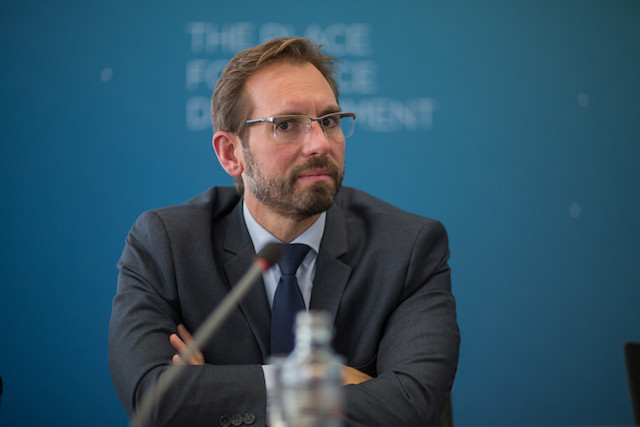The launch of the agency was more of a rebrand; it was previously an administrative unit within the economy ministry. The fact that it sits in the economy ministry is a marked difference with most of its international counterparts, which are usually housed in research or science ministries, said Marc Serres, the LSA’s CEO. That’s because the government’s space policy aims “to contribute to the diversification of our economy”.
The goal of its cornerstone initiative since 2016, Spaceresources.lu, is to attract asteroid mining outfits and other companies tapping extraterrestrial resources to set up shop in Luxembourg. This is a long-term strategy and echoes an earlier gamble that has paid off, according to Serres. “It’s a bit like what happened with SES 30 years ago when they decided to create something new in Luxembourg. And here, with space resources, we are already preparing Luxembourg for the next, I don’t know, maybe 20 years or so. And hopefully, in 20 or 30 years, we will have a similar success with this initiative that we had with SES.”
Just how big could the space resources get? “It’s difficult to know, but sometimes the minister [of the economy and deputy prime minister Étienne Schneider of the LSAP] says he would like to double its proportion of the GDP.”
Currently, it represents about 1.8% of the economy, “and he mentioned a few times that he sees it being 5% within the next 10 years. I also learned that some people have the understanding that, when we communicate about that, we want even to replace the financial sector, which is about one third [of the economy] today. So, can the space sector be as big as the financial sector? Probably not during the time I will be CEO, but who knows. I mean, this initiative on space resources is ‘the bet’. We did it in the 60s with the steel industry. And at that time, I think it was nearly 40% of GDP.” So, if the bet pays off, “using the resources of space… could become, one day, a very important part of the economic value in Luxembourg. But this is, of course, longer term.”
Closer to now, nine companies “have created around 70 new jobs,” since the new campaign began in 2016, stated Serres. If their growth plans pan out, that could add “potentially 400 new jobs within the next three years or so, which is significant. We started in 2015 with about 700 people working in space here in Luxembourg. So that would [mean], within 10 years, we have increased the size of the sector by 50%, if it materialises.”
Space date centre
The agency has also invested in creating its LSA Data Center, “operational since the beginning of the year”, with “three or four companies and research centres” already customers. The data centre piggybacks on the European Space Agency’s Copernicus programme, which the ESA said in January generates “terabytes of data every day making Copernicus the biggest provider of Earth observation data in the world”.
All of that data is open access, available to all-comers, Serres noted. But the LSA Data Centre marries “a certain subset” of commercially useful Copernicus data with other data sources--such as “optical data”--and with the European high-performance computing capabilities currently being developed in Luxembourg. The goal is to provide “something unique to the companies that need data to deliver their services and products”.
Looking ahead
Serres said Luxembourg’s government is currently working on a new national space plan which will be completed in “October or November”. Right now, officials are “reviewing, taking some lessons learned from what we’ve done and looking at the need to create new initiatives”. Details are likely to be discussed during the ESA ministers’ summit that will be held in Seville this November. Until then, Serres said the LSA will continue “talking with companies; trying to attract new ones here, helping those that are here to grow”.
This article was originally published in the June 2019 edition of Delano Magazine.
